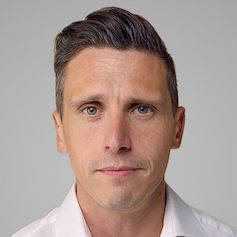But is being tired simply a natural part of getting older?
But is being tired simply a natural part of getting older, a physical representation of the wider stresses and strains of our modern hectic lifestyles, or can it be part of an underlying disease or illness? In reality, this can be difficult to determine for both patients and doctors.
Around 10% of consultations with NHS GPs are for what we term as “tired all the time” symptoms. For many people, this often-vague presentation will tend to lead to the majority of those affected undergoing a set of routine blood tests. This process is highly effective in ruling out those conditions with serious implications, (such as underlying anaemias, liver disease, or kidney disease), but often misses the majority of causes which, although not life-threatening, significantly impact on our ability to function on a daily basis.
The biggest reason it can be hard for NHS GPs to diagnose the underlying cause of fatigue, is that they are simply not afforded enough time, or the resources necessary, to get to the route cause of the problem. Tiredness can be caused by several factors, ranging from metabolic illness (such as diabetes or low testosterone), to mental illness, or simply just being overworked. To make matters worse, because of the complexities of our lives, the causes of fatigue are often multifactorial and many smaller contributing issues result in an overall symptom of exhaustion. I have lost count of the number of times a patient has called to ask for some form of “tonic” or “pick me up”; something to boost energy. Sadly, I always reply that no such legal and prescribe-able drug exists.
Who should I turn to for medical advice?
Many people who suffer with fatigue do not seek medical advice until their symptoms are severe, or additional problems arise. In the early stages, tiredness is blamed on a combination of life stresses, children, work, and the relentless pressures we put ourselves under in 21st century Britain. However, one of the earliest symptoms of both menopause in women and testosterone deficiency in men, is tiredness. This can precede changes in periods or erectile dysfunction by months or even years, and as such, symptoms are trivialised or ignored. Although thyroid disease is less common in men, it still remains a relatively prevalent condition with around 2% of all women in the U.K. being affected. An underactive thyroid makes our metabolisms slow down and reduces our energy or “get up and go”. Even nutritionally, vitamin D deficiency, B12, folic acid, and iron deficiencies can all result in a decline in energy, but if we do not consider these options, we cannot hope to cure them.
When it comes to psychology, our bodies often physically display the emotional stresses we are under in different ways. We may have trouble sleeping, be more prone to coughs and colds, eat more, or eat less, and may also become more tired. In those people suffering anxiety disorders, the constant, raised stress hormones and heightened neurological anxiety must be both psychologically and physically exhausting. This can be particularly hard as not only do sufferers have no energy, but also struggle with the sleep they know they need to help them improve.

So what should you do if you are feeling tired?
The first thing I always suggest to patients is to step back, self-reflect, and look at their own lives. Have you taken on more than you wanted? Do you devote at least thirty minutes every day to “me time”, where the phone is off, and emails are ignored? When was the last time you had a holiday? (this is something many of us are guilty of). If the answers to all these questions seem reasonable, my best advice is to speak to a male- or female-health specialist doctor. They can go through your symptoms, psychology and physiology with you and get to the root cause of why you aren’t feeling the way you should.
Having less energy than a 9 year-old is a normal part of ageing, but being tired all the time is not.




